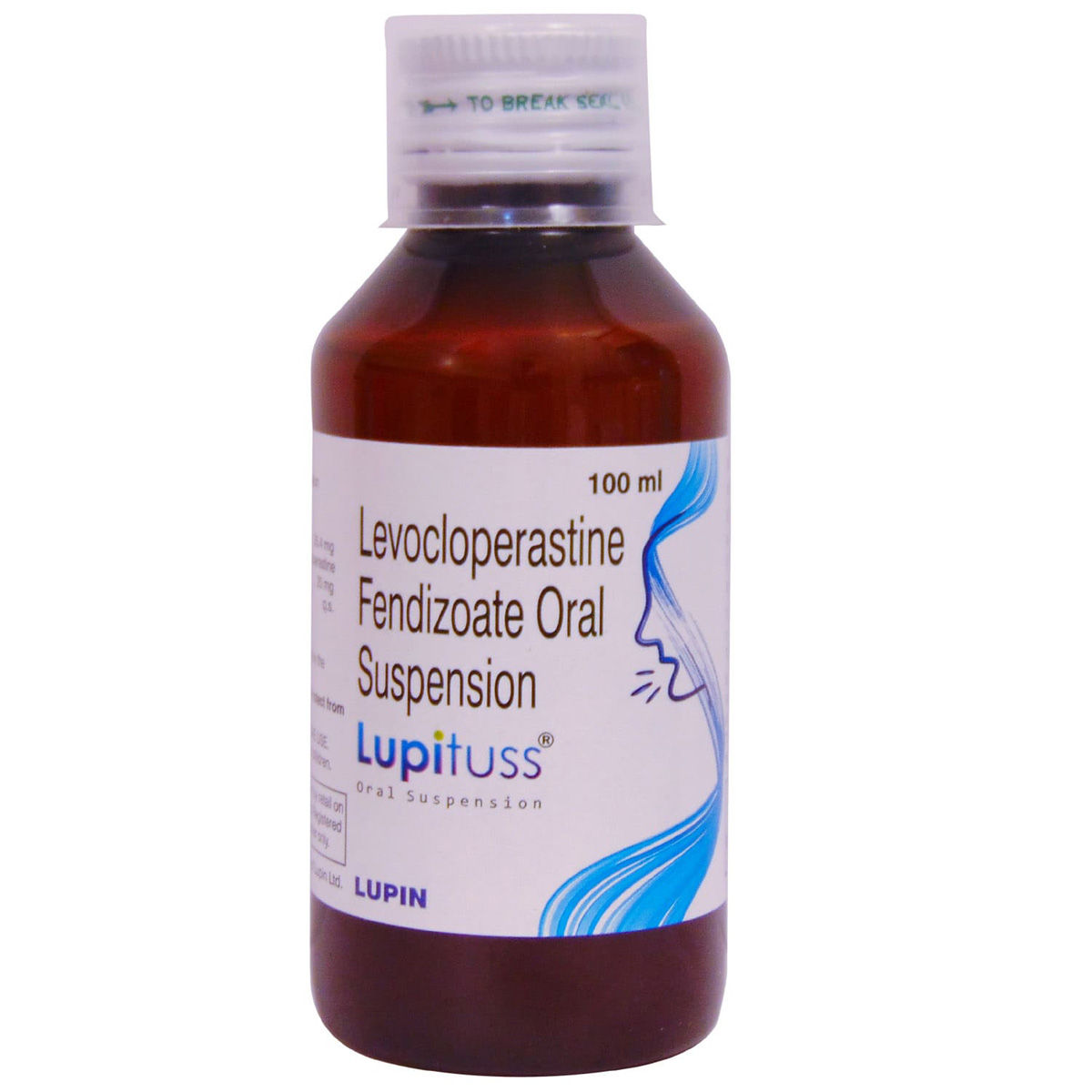Levocloperastine Fendizoate
About Levocloperastine Fendizoate
Levocloperastine Fendizoate contains an anti-tussive (relieve cough) medication primarily used to treat dry cough. A cough is a reflex action that helps to clear any foreign irritant or mucus in the throat. Mostly, a cough lasts for a short time (two to three weeks), so it is acute. But sometimes, if it is persistent for more than eight weeks, it can lead to chronic cough. Dry cough refers to a cough where there is no mucus or secretion along with cough.
Levocloperastine Fendizoate contains levocloperastine fendizoate, a cough suppressant. It works by blocking the cough receptor in the brain, which is known to cause cough. Levocloperastine Fendizoate is generally prescribed for the short-term treatment of dry cough. It is also used to treat chronic coughs or coughs caused by smoking, emphysema, and asthma.
Take Levocloperastine Fendizoate as prescribed by your doctor. Depending on your medical conditions, you are advised to take Levocloperastine Fendizoate as long as your doctor prescribes it. You may experience nausea, drowsiness, palpitations (racing or skipping heartbeat), dryness in the mouth, dizziness, fainting, headache, fatigue, loss of appetite (not feeling hungry), hydrodipsomania (periodic episodes of uncontrollable thirst), and sleepiness. Most of these side effects of Levocloperastine Fendizoate do not require medical attention and gradually resolve over time. However, if the side effects persist or worsen, please consult your doctor.
If you are known to be allergic to Levocloperastine Fendizoate or any other medicines, please tell your doctor. Levocloperastine Fendizoate should not be taken in conditions like high blood pressure and diabetes mellitus. Increase the intake of fluids so that the mucus present loosens and the throat remains lubricated. Before taking Levocloperastine Fendizoate, mention all the OTC medicines you take to your doctor. If you are pregnant or breastfeeding, please inform your doctor before starting Levocloperastine Fendizoate. Levocloperastine Fendizoate should not be used in children below two years of age as safety and efficacy have not been established. Levocloperastine Fendizoate may cause drowsiness, sleepiness and dizziness. You should not drive unless you are alert.
Uses of Levocloperastine Fendizoate
Medicinal Benefits
Levocloperastine Fendizoate is primarily used to treat dry cough. Levocloperastine Fendizoate contains levocloperastine fendizoate, which is a cough suppressant. It works by blocking the cough receptor present in the brain, which is known to cause cough. Levocloperastine Fendizoate is generally prescribed for short-term treatment of dry cough. It is also used to treat chronic cough or cough caused by smoking, emphysema and asthma
Directions for Use
Storage
Side Effects of Levocloperastine Fendizoate
- Nausea
- Drowsiness
- Palpitations (racing or skipping heartbeat)
- Dryness in mouth, dizziness
- Fainting
- Headache
- Fatigue
- Loss of appetite (not feeling hungry)
- Hydrodipsomania (periodic episodes of uncontrollable thirst)
- Sleepiness
Drug Warnings
Do not take Levocloperastine Fendizoate if you are allergic to Levocloperastine Fendizoate or any ingredients of Levocloperastine Fendizoate. Increase the intake of fluids so that the mucus present loosens and the throat remains lubricated. Also, mention all the OTC medicines you are talking to your doctor before taking Levocloperastine Fendizoate. Levocloperastine Fendizoate should not be taken in conditions like high blood pressure, thyroid disease, kidney, liver, heart disease and diabetes mellitus. Levocloperastine Fendizoate should not be stopped abruptly as it might lead to withdrawal symptoms like irritability, anxiety, diarrhoea, restlessness, and increased blood pressure. If your condition does not improve or your cough comes back or occurs with a fever or rash, please visit the doctor immediately, as this could be serious. You must tell your doctor if symptoms do not get better within seven days of the treatment. Please do not smoke, as it might worsen your symptoms, so avoid tobacco intake. If you are pregnant or breastfeeding, please inform your doctor before starting Levocloperastine Fendizoate. Levocloperastine Fendizoate should not be used in children below two years of age as safety and efficacy have not been established. Levocloperastine Fendizoate may cause drowsiness, sleepiness and dizziness. You shouldn't drive unless you are alert.
Drug Interactions
Drug-Drug Interaction: Levocloperastine Fendizoate may interact with antidepressant medicines (fluoxetine, sertraline, fluvoxamine), and medicines used for mental alertness (armodafinil, atomoxetine, amphetamines).
Drug-Food Interaction: No interactions found.
Drug-Disease Interaction: Levocloperastine Fendizoate should be used cautiously in patients with increased blood pressure and diabetes.
Drug-Drug Interactions Checker List:
Safety Advice

Alcohol
unsafeAvoid consumption of alcohol with Levocloperastine Fendizoate as it may increase drowsiness. Please consult a doctor before consuming alcohol with Levocloperastine Fendizoate.

Pregnancy
cautionThe safety of Levocloperastine Fendizoate in pregnancy is unknown, so it should be taken only if prescribed by a doctor.

Breast Feeding
cautionThe safety of Levocloperastine Fendizoate in breastfeeding women is unknown, so it should be taken only if prescribed by a doctor.

Driving
unsafeLevocloperastine Fendizoate may cause drowsiness or tiredness in some people. Therefore, drive only if you are alert after taking Levocloperastine Fendizoate.

Liver
cautionTake Levocloperastine Fendizoate with caution, especially if you have a history of Liver diseases or conditions. Your doctor may adjust the dose as needed.

Kidney
cautionTake Levocloperastine Fendizoate with caution, especially if you have a history of Kidney diseases or conditions. Your doctor may adjust the dose as needed.

Children
cautionLevocloperastine Fendizoate is not recommended for children below the age of 2 years.
Habit Forming
Diet & Lifestyle Advise
- Wash your hands with soap and water regularly to prevent the spread of germs.
- Eat plenty of foods rich in good bacteria, like yoghurt, to improve overall health.
- Drink plenty of fluids to avoid dehydration.
- Gargle with salt water for relief from sore throat.
- Please do not smoke, as it might worsen your symptoms, so avoid tobacco intake.
- Avoid alcohol consumption with Levocloperastine Fendizoate as it may cause tiredness, drowsiness or lack of concentration.
Special Advise
- It should be used with caution in elderly patients as it may lead to unwanted adverse events.
Patients Concern
Disease/Condition Glossary
Cough: It is a reflex action that helps to clear any foreign irritant or mucus in the throat. Mostly, a cough lasts for a short time (two to three weeks), so it is acute. But sometimes, if it is persistent for more than eight weeks, it can lead to chronic cough. If the cough is accompanied by blood or barking cough, this could be serious and require medical attention. The most common causes of cough are cold/flu, asthma, emphysema, and COPD (chronic obstructive pulmonary disease). Also, some medications, especially angiotensin-converting enzyme inhibitors used for hypertension, are known to cause cough.
FAQs
Levocloperastine Fendizoate is used to treat dry cough (cough without mucus).
Levocloperastine Fendizoate contains levocloperastine fendizoate, which is a cough suppressant. It works by blocking the cough receptor present in the brain, which is known to cause cough. Levocloperastine Fendizoate is generally prescribed for short-term treatment of dry cough. It is also used to treat chronic cough or coughs caused due to smoking, emphysema and asthma.
No, Levocloperastine Fendizoate should not be stopped abruptly without consulting your doctor, as it might lead to withdrawal symptoms like irritability, anxiety, diarrhoea, restlessness, and increased blood pressure. So, please consult your doctor; depending on your condition, he might gradually lower your dose.
Yes, Levocloperastine Fendizoate may cause drowsiness, so operating machinery, driving a car, or engaging in any activity that requires concentration and alertness should be avoided.
Yes, dry coughs frequently are caused by allergies. Cough-modified asthma and upper airway cough syndrome are syndromes linked with certain allergies. Gastroesophageal reflux disease (GERD) can also lead to coughing that gets worse with food allergies.
A dry cough worsens at night due to asthma, gastroesophageal reflux disease (GERD), and post-nasal drip. GERD can worsen at night when you lie down as stomach contents, especially stomach acid, can reflux out of the stomach and may lead to a cough. Asthma can be due to dry air and cold, and it is frequently present at night. Post-nasal drip can also lead to more coughing when you lie flat.
Yes, Levocloperastine Fendizoate may cause dry mouth as a common side effect. If you experience dry mouth overcome it with staying hydrated, chewing sugar-free gum, or using saliva substitutes. Consult the doctor if this symptom persists for further advice.
The best time to take Levocloperastine Fendizoate can be determined by the doctor based on your health condition. Therefore, always follow your doctor’s instructions regarding dosage and timing for optimal effectiveness.
The side effects of Levocloperastine Fendizoate include drowsiness, palpitations (racing or skipping heartbeat), nausea, dryness in the mouth, dizziness, fainting, headache, fatigue, loss of appetite (not feeling hungry), hydro dipsomania (periodic episodes of uncontrollable thirst), and sleepiness. Consult the doctor if any of these side effects persist or worsen.







